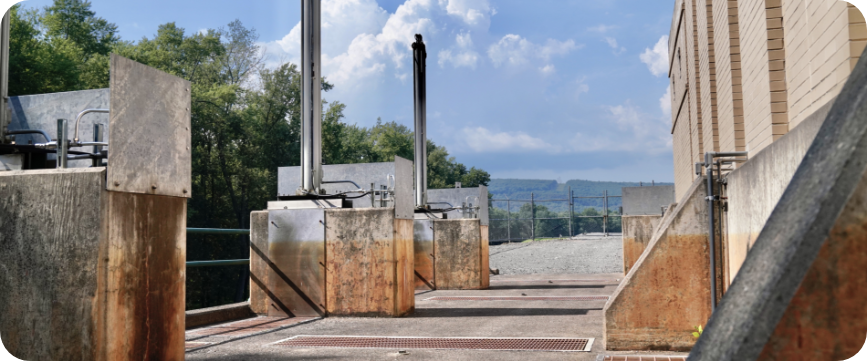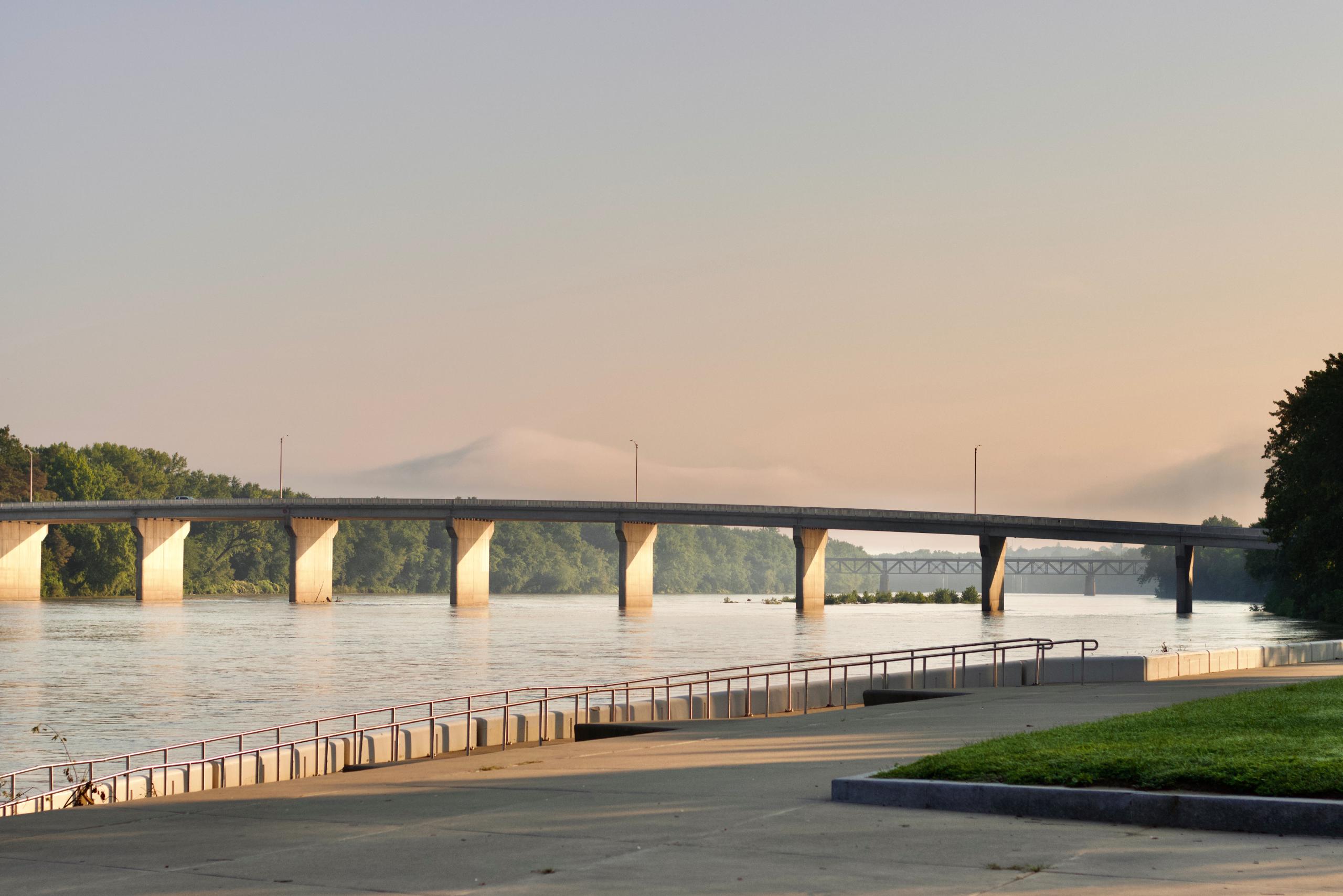Levee Fee

Levee Fee Explanation
The Luzerne County Flood Protection Authority (LCFPA) is tasked with the maintenance and operation of the Federally authorized 16-mile Wyoming Valley Flood Risk Management Project (WVFRMP). The Authority’s sole source of revenue to fund these activities is through an annual levee fee.
Elite Revenue Solutions, LLC has been retained by the Authority to perform current levee fee collections. Portnoff Law Associates, Ltd. has been retained by the Authority to perform delinquent levee fee collections.
For frequently asked questions.
Click HereLevee Fee Billing dates
The levee fee is an annual fee that is imposed on all improved residential, commercial, industrial and tax-exempt (CIT) properties that are located within the Susquehanna River floodplain as defined by the 1972 Tropical Storm Agnes flood event. It is these properties that directly receive the services provided by the Luzerne County Flood Protection Authority. From 2009 to 2016, the annual levee fee bills were issued to property owners by October 1 of each calendar year. Starting in 2017, the issuance of the annual levee fee billings were revised to April 1, so that anticipated revenue are in line with forecasted expenditures.
The 2025 levee fee bills are issued April 1, 2025 and due by June 1, 2025 before delinquent charges begin to be applied.
2025
The 2025 levee fee bills are issued on April 1, 2025, and due by June 1, 2025, before delinquent charges begin to be applied.
Payment information
- Current Payment Information
- Delinquent Payment Information
Elite Revenue Sources, LLC has been retained by the Authority to perform the current 2025 levee fee collections.
Make checks payable to: Elite Revenue Solutions LLC

Mail payments to: Elite Revenue Solutions, LLC 200 N River Street, Wilkes-Barre, PA 18711-1004

Payments can also be made at: any Landmark Bank Branch location.
To review property and current levee fee payment information,
- Go to the Elite Revenue Solutions website at www.eliterevenue.com Under Taxpayer Links click on “Luzerne County”,
- Then click on “Levee Fee Payment” from the list on the left hand side of the screen.
- Enter either the property address or the Property Identification Number (PIN) to learn the status of your property and your current levee fee payment.
It is the ultimate responsibility of the property owner, not the Authority or Elite Revenue Solutions, to ensure the entity name, mailing address and other information of their properties are current and accurate with the Luzerne County Assessor’s Office. Please contact the Assessor’s Office at 570.825.1868 for any change to property records and mailing addresses.
Portnoff Law Associates, Ltd., has been retained by the Authority to perform delinquent levee fee collections for the years 2009 through 2023.
Make checks payable to: Portnoff Law Associates, Ltd.

Mail payments to: Portnoff Law Associates, Ltd. P.O. Box 3020, Norristown, PA 19404-3020

Portnoff Ltd. Customer Service Phone: (866) 211-9466, Mon-Fri, 8:00AM-5:00PM E-mail:PropertyOwner@portnoffonline.com
Please include the address of the parcel, the Property Identification Number (PIN) or a copy of the levee fee bill, along with payment. Continued non-payment will result in further collection procedures and additional assessments of collection fees.
- Portnoff Ltd. Customer Service
Levee fee requestors are encouraged to visit Portnoff Law Associates website for more information forms, etc. regarding payoffs: www.portnoffonline.com
Question and Answer
Why was the fee enacted?
In 2009, the former Luzerne County Board of Commissioners in an effort to balance the General Fund budget, removed all levee maintenance from the budget. This action required the Authority to develop a separate funding mechanism that provided the revenue to support our maintenance and operation activities. On April 21, 2009, the Authority Board approved a Resolution to impose a system of flood protection fees.
Can the Authority charge a fee?
The Pennsylvania Municipal Authorities Act provides the ability “to fix, alter, charge and collect rates and other charges in the area served by its facilities at reasonable and uniform rates to be determined exclusively by it for the purpose of providing payment of the expenses of the authority, the construction, improvement, repair, maintenance and operation of its facilities and properties.”
Who pays the fee?
The fee is imposed on all improved residential, commercial, industrial and tax-exempt (CIT) properties that are located within the Susquehanna River floodplain as defined by the 1972 Tropical Storm Agnes flood event. It is these properties that directly receive our flood protection services. Within days after the event, field surveyors delineated the limits of the Agnes flood inundation area. This 1972 flood map indicates all properties that were impacted by the Agnes flood event. Vacant land, which does not contain an insurable improvement, is not subject to the fee.
Why isn’t the fee spread across the entire County?
The Authority does not have the legal ability to impose the fee on the entire County. In accordance with the Pennsylvania Municipal Authorities Act, the fee can only be imposed on those properties that are in the area served by our flood risk management facilities. This is defined as those properties that were flooded as a result of the 1972 Agnes flood event.
In December 2014, in the Court of Common Pleas of Luzerne County, Municipality of Kingston et al. v. Luzerne County Flood Protection Authority, Judge Richard M Hughes, III, ruled that the Authority’s levee fee enacted by the Authority’s April 21, 2009 Resolution is valid.
What does the fee pay for?
The WVFRMP is a large, dynamic and complex civil engineering system that includes 16-miles of levees and floodwalls, 78 drainage structures, 123 relief wells, 20 closure structures, 13 pump stations with 39 deep well pumps, and an electrical distribution system that consists of 8 substations, 27 transformers and 9 miles of underground and aerial transmission lines. The system also contains the Toby Creek Impoundment Basin which is a 28’ high, 4,506’ long earthen dam, and the 16’-6” diameter by 1.2 mile long Toby Creek underground pressure conduit. The fee covers the annual operation and maintenance expenses of the WVFRMP (payroll, benefits, utilities, insurance, materials & supplies, tools, fuel, equipment maintenance and replacement, professional services, capital improvement projects, etc.). No fees are applied to the public recreational amenities that are indirectly provided by the flood risk management project.
What are the benefits of the project?
The flood protection system in the Wyoming Valley started as a response to the Susquehanna River flooding of March 1936. The Wyoming Valley Levee Raising Project, which occurred from the mid-1990s to the early 2000s, raised the level of protection 3 to 5 feet and was undertaken to prevent a recurrence of an Agnes-level flood event. In September 2011, the Tropical Storm Lee flood event resulted in the historic peak river crest of 42.66 feet, or 1.75 feet above the Agnes flood crest. Despite the system being subjected to a flood event greater than what it was designed for, the project performed as designed and flood damages to the protected areas were minimal. It is estimated that, since 1968, over $7.5 billion in flood damages have been prevented due to the operation of the WVFRMP.
How much are the fees?
The annual fees are based on six (6) property categories as follows:
R1: Residential properties with improvement assessments less than $100,000.
$63.43
R2: Residential properties with improvement assessments equal to or greater than $100,000.
$126.87
CIT0: CIT properties with improvement assessments less than $100,000.
$126.87
CIT1: CIT properties with improvement assessments equal to or greater than $100,000 but less than $250,000.
$404.36
CIT2: CIT properties with improvement assessments equal to or greater than $250,000 but less than $750,000.
$808.72
CIT3: CIT properties with improvement assessments equal to or greater than $750,000.
$1,213.08
It is now 20 years since segments of the Wyoming Valley Levee Raising Project have been completed and turned over to the Authority. In order to maintain the integrity of the system in accordance with United States Army Corps of Engineers standards, capital improvement investments are being planned, scheduled and implemented. In order for the Authority to adopt a responsible and sustainable budget, anticipated revenue from the levee fee must be balanced against forecasted expenditures.
I am not required to have flood insurance so why am I subject to the levee fee?
Federal Emergency Management Agency (FEMA) flood insurance requirements are based on a flood event with a 1% chance of occurrence in any year (100-Year Flood). The Agnes flood plain was a larger flood event (approximately 300-Year Flood) that impacted a larger area than the FEMA flood plain.
I no longer own the property, the property is vacant, errors on the bill and other issues.
Please notify the Authority in writing to, P.O. Box 1909, Kingston, PA 18704, and state the specific complaint. The Authority will work with our professional consultants to investigate the condition and update the property records as necessary. However, it is the ultimate responsibility of the property owner, not the Authority, to inform all applicable government agencies of any change to property records and mailing addresses.
Levee Fee Appeal
It is strongly recommended that any levee fee appeal be accompanied with any photographs or other substantiating information that helps support your claim. Simply stating that the property was not in the flood is not sufficient for the Authority to have it removed from the levee fee database. If you feel that your property was not within the floodplain of the 1972 Agnes Flood event, you may complete a Levee Fee Appeal Form and submit this document to the Authority. Your claim will be investigated by the Authority and you will receive a written response. A copy of this document can be found by clicking here.

